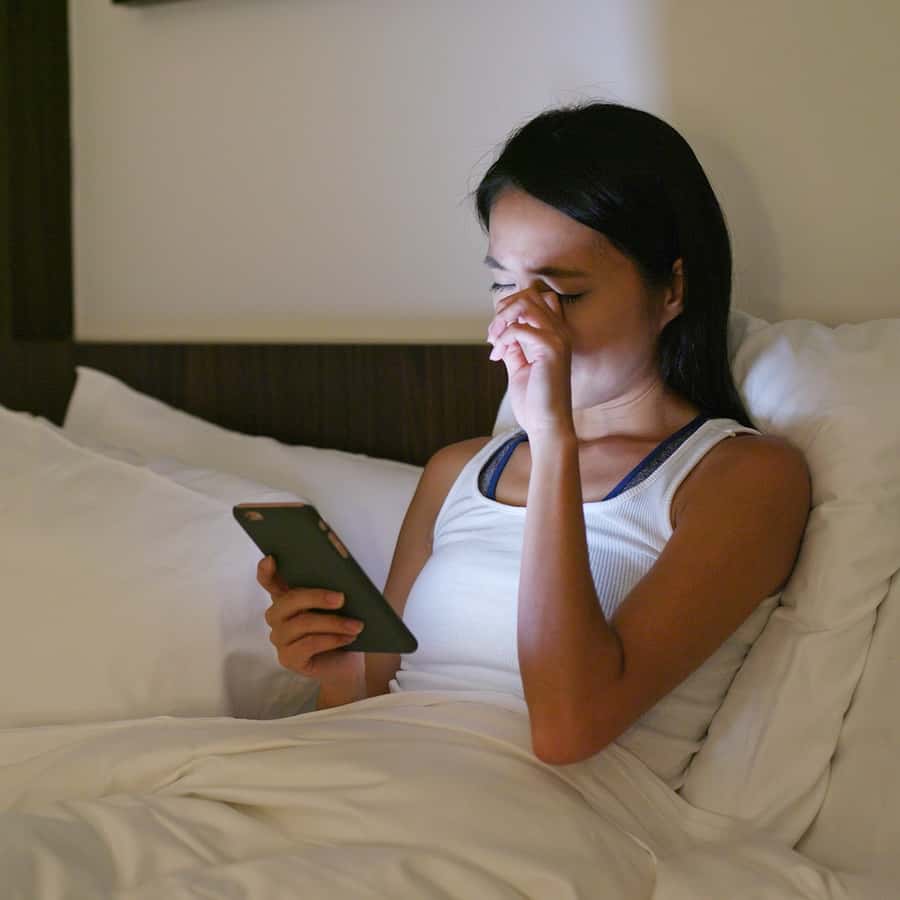
Could your digital viewing habits be harming your eyes? Computers, cell phones and hand-held devices all put out blue light that reaches the retina.
The Problems with Blue Light:
Two new studies suggest that this may be damaging the all-important cells in the retina. Researchers at the University of Toledo discovered that a compound called retinal generates toxic oxygen radicals when it is exposed to blue light (Scientific Reports, July 5, 2018). This natural chemical can kill cells in the retina and might increase the risk of vision-damaging macular degeneration.
French researchers independently discovered that blue light is harmful to the cornea and conjunctiva (Free Radical Biology & Medicine, July 21, 2018). They consider these wavelengths to be phototoxic.
Blue Light Disrupts Sleep:
Although these studies focused on phototoxicity, previous research has documented sleep disruption from screen time too late in the evening.
If you’ve ever checked email, Facebook or Twitter before shutting down your computer, laptop, tablet or phone, you’re not alone. Many people watch late night television or review email or social media before they get into bed. Research suggests that could be a big mistake, though. Most electronic screens put out blue light that disrupts sleep cycles through changing melatonin production.
Is Your Computer Keeping You Awake?
Israeli researchers found that screens that filter out blue light in favor of red light are less likely to interfere with sleep (Green et al, Chronobiology International, online May 26, 2017). The study included 19 young adults. They wore actigraphs to measure their activity and kept sleep diaries and answered questionnaires about their sleep. Then they were exposed to computer screens between 9 and 11 pm.
The screens produced either high-intensity blue light, low-intensity blue light or red light varied by intensity. People exposed to light at the blue end of the spectrum slept about a quarter of an hour less. They also made less melatonin and woke up more often during the night. These findings confirm previous studies showing that blue light disrupts sleep. iThe red light screens did not appear to alter sleep behavior.
Blue Light Screens:
You may not realize it but most electronic screens emit this type of light. That’s because back-lit LED (light emitting diode) technology enhances clarity and brightness. As we demand more definition from our photos and videos, we end up with more short-wavelength, high-energy blue light on our cell phones, laptops, tablets and computers.
What Can You Do About These Screen Hazards?
What’s the solution to our addiction to electronic devices? Turn them off at least one hour before bed time. Instead of checking email one last time or responding to posts on Facebook, grab a real book and unwind from the electronic world. You just might sleep better and not wake up in the middle of the night.
In addition, many computers and devices have settings such as Apple’s Night Shift that allow the user to reduce exposure to light in that range. These solutions have not been studied with respect to age-related macular degeneration, but readers find them helpful for better sleep.
Elliott wrote:
“A program called f.lux will automatically change the screen light after dark in your geographic location to minimize blue light. It works very well and your eyes normalize to this change very quickly. You can also buy special glasses on Amazon that do the same thing.”
Don endorsed the special glasses:
“I use blue blocker glasses. Not only do they block most of the blue light, but they have stopped the eye irritation I was experiencing while looking at my monitor. They can be found online.”

